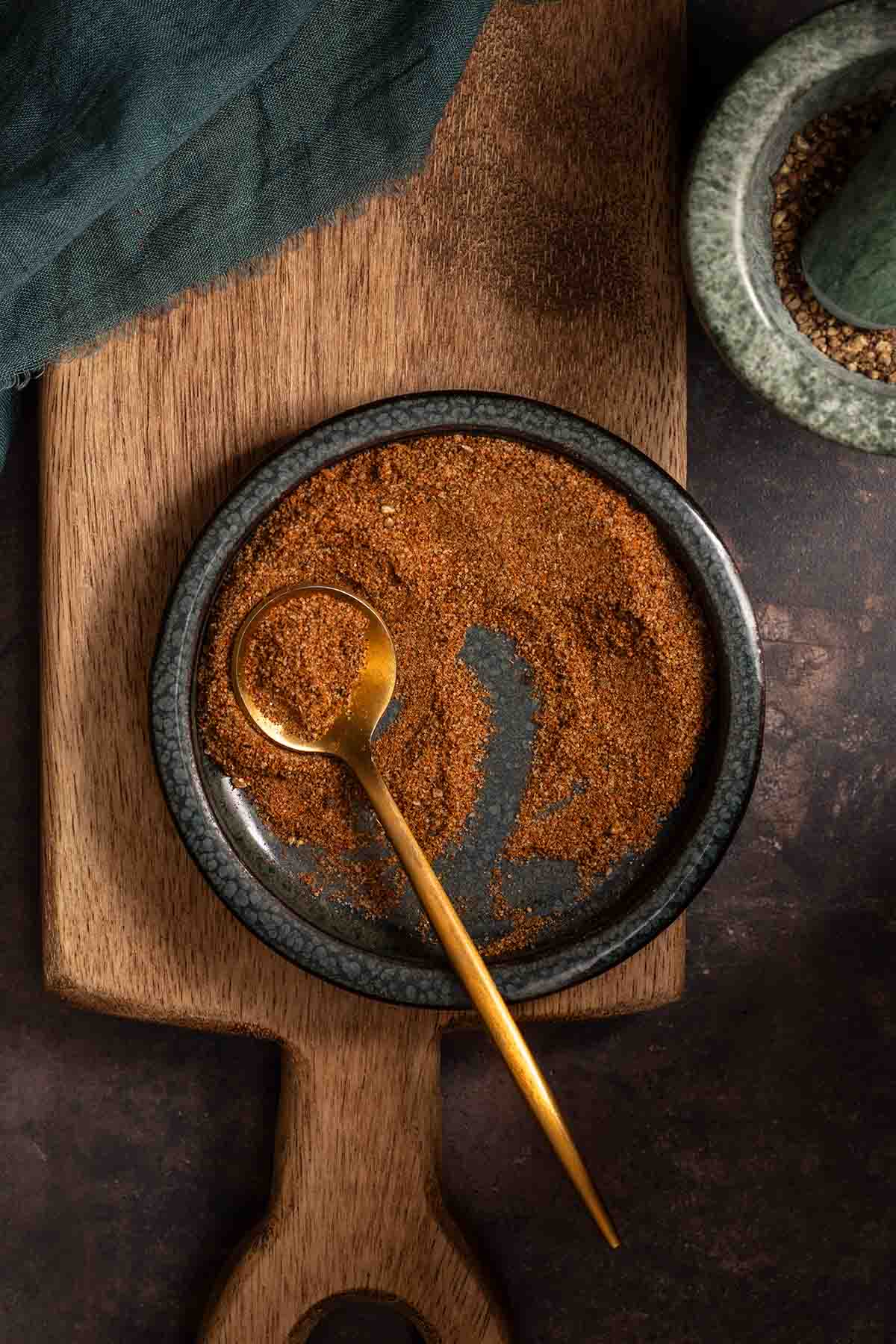
Jump To
- Why Our Testers Loved This
- What’s in Old Bay Seasoning?
- Step-by-Step Instructions
- Common Questions
- What Can I Do with Copycat Old Bay Seasoning?
- Pro Tips & Troubleshooting
- What are the benefits of Making My Own Old Bay?
- More Great Seasoning Blend Recipes
- Write a Review
- Homemade Old Bay Seasoning Recipe
- Recipe Testers’ Reviews
You may know Old Bay seasoning best as an indispensable ingredient in a classic crawfish boil or crab cakes with a lovely lemon sauce. But who said it’s exclusively the domain of seafood? Go on. Shake the seasoning on everything else…
Featured Review
I ran out of Old Bay and wanted to make my crab cakes. I scrolled down a few sites, but not one recipe for homemade Old Bay sounded right. Too salty, not spicy enough. Then I thought “hHey, David the Magnificent should have a spin on it.” And, voila! David, as always, you saved the day! My crab cakes came out even better than the last time I made them. David, you are Magnificent!!
Janet

Why Our Testers Loved This
The testers are sprinkling this on everything they can find, and for good reason. They loved that this homemade Old Bay spice blend tastes authentic yet doesn’t contain preservatives. Many of them look forward to adding this to their arsenal of homemade food gifts to share with friends and family.
Brenda C. “enjoyed the freshness of the homemade version, which was well-rounded and complete.” Hubba, hubba!
What’s in Old Bay Seasoning?
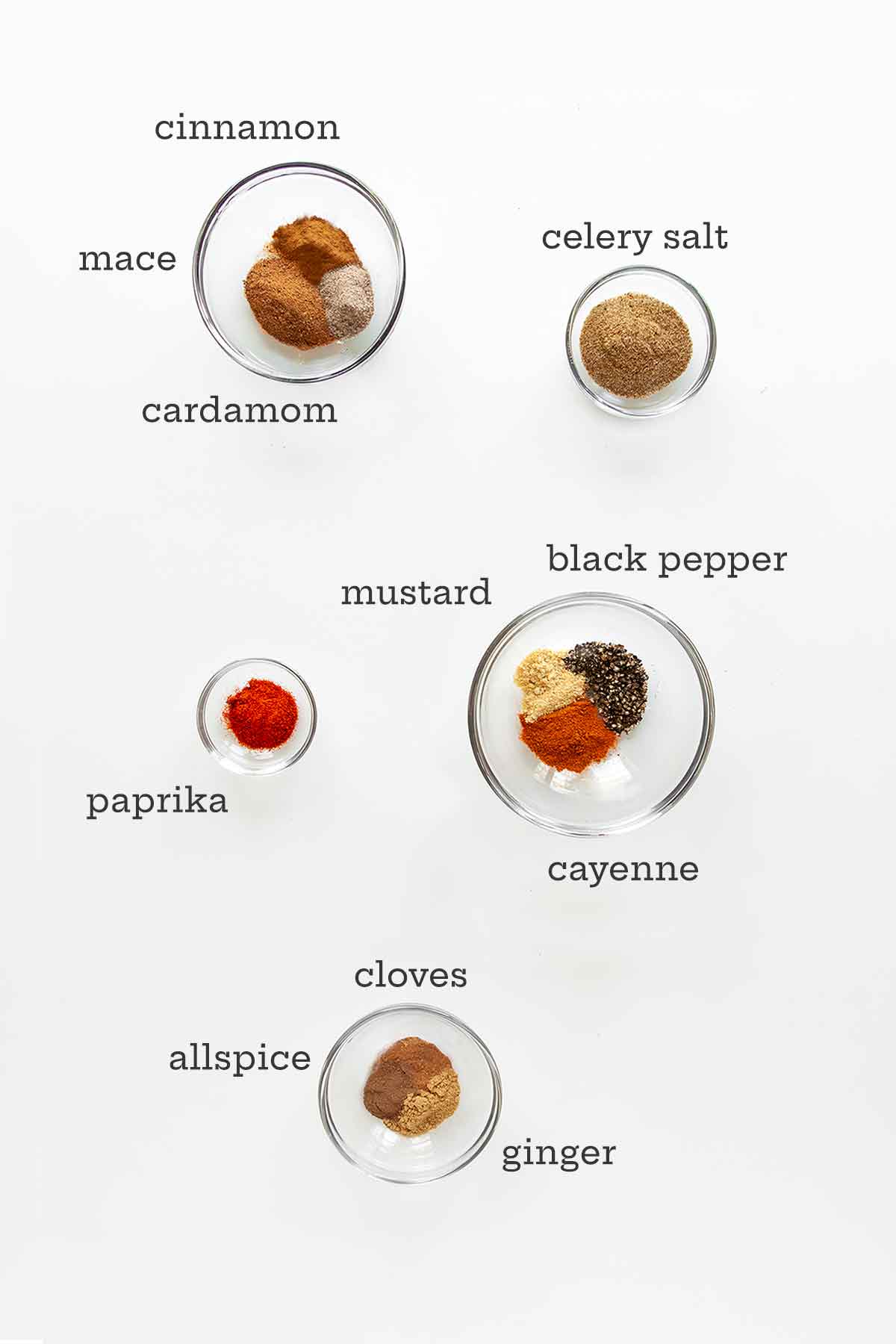
- Celery salt–Made from a combination of ground celery seed and salt, this contributes plenty of saltiness to the Old Bay-style seasoning blend. Keep this in mind when seasoning your food, as it may not need any additional salt.
- Paprika–This spice, made from ground red peppers, adds depth of flavor to the spice blend. We recommend regular paprika here.
- Ground mace–This is ground from the outer coating of the nutmeg seed. You can substitute ground nutmeg if necessary.
Step-by-Step Instructions
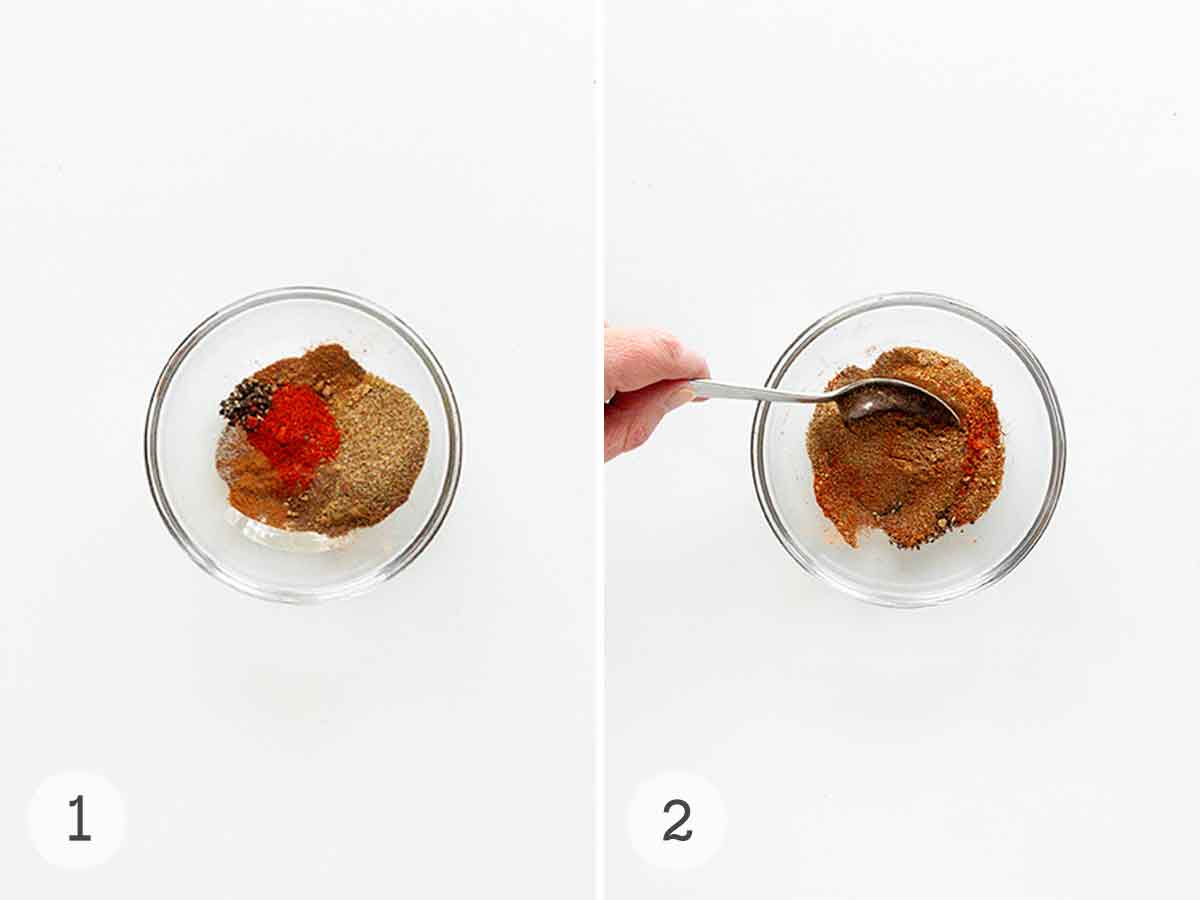
- Combine all of the spices in a small bowl.
- Stir until thoroughly combined. Transfer to an airtight jar or container and store at room temperature for up to 2 months.
Common Questions
Want to Save This?
Like most spice blends, it will keep for up to 6 months if stored in an airtight container in a cool, dark place. Given the options listed above, we doubt it will last you anywhere near that long.
The original Old Bay seasoning blend was created in 1940 by Gustav Brunn, a German spice maker who came to the US as a Jewish refugee during World War II.
The spice blend was created in Maryland and was originally sold under the name Delicious Brand Shrimp and Crab Seasoning, before being changed to Old Bay Seasoning. The rights to the spice blend were purchased by McCormick in 1990.
What Can I Do with Copycat Old Bay Seasoning?
– Mixed into crab cakes, natch
– Sprinkled on sweet corn on the cob
– Shaken or stirred into a Bloody Mary
– Dumped on french fries
– Incorporated into the flour for dredging pan-fried fish or pan-fried chicken
– Dumped into seafood gumbo
– Stirred into Spanish gazpacho
– Strewn atop a baked potato
– Dusted daintily over naan
– Stirred into egg salad without mayo
– Rubbed on grilled fish that’s destined to be wrapped up in soft corn tortillas (that is to say, grilled fish tacos)
– Melded into hot crab dip
– Tossed with homemade popcorn
– Whisked into egg white omelets
– Swirled into seafood soups and stews
– Whirled into homemade tartar sauce
– Dissolved in a brine for pork or poultry
– Sprinkled in bread crumbs for, well, just about anything
– Mashed into deviled eggs Injected into chicken or turkey
– Mixed into the coating for onion rings
– Heaped on homemade potato chips
– Added to mayo for a quick dip
– Mashed with butter, garlic, and Parmigiano-Reggiano and slathered on warm bread
– Rubbed between the meat and skin of a hen prior to roasting
– Sprinkled on homemade tortilla chips as they’re pulled from the oil
– Tossed with breakfast oven fries
– Added to stuffing or, if you prefer, dressing (and we’re quite certain you know the difference between them…right?)
– Combined with hummus
– Strewn on crawfish anything
Pro Tips & Troubleshooting
- For the most potent flavor, grind your own spices. Always measure the spices after grinding.
- If you plan on using this seasoning mix frequently, double or triple the recipe.
- If you prefer to be more precise in your measurements, a “pinch” can be measured as 1/16 of a teaspoon.
- Store the spice blend in an airtight container in a cool, dark place.
What are the benefits of Making My Own Old Bay?
There are several great reasons to make your own homemade Old Bay seasoning. You can whip up as big or small a batch as you like, depending on how frequently you use it. You can also adjust the seasoning and blend of spices to accommodate your personal preferences, allergies, or dietary needs.
Write a Review
If you make this recipe, or any dish on LC, consider leaving a review, a star rating, and your best photo in the comments below. I love hearing from you.–David

Homemade Old Bay Seasoning
Ingredients
- 1 tablespoon celery salt
- 1/4 teaspoon paprika
- 1/8 teaspoon black pepper
- 1/8 teaspoon cayenne pepper
- 1 pinch ground dry mustard
- 1 pinch ground mace, (may substitute a teensy pinch nutmeg)
- 1 pinch ground cinnamon
- 1 pinch ground cardamom
- 1 pinch ground allspice
- 1 pinch ground cloves
- 1 pinch ground ginger
Instructions
- Stir together all the ingredients in a small bowl. Transfer to a container of some sort that has a tight-fitting lid—a glass jar with a screw-top lid works spectacularly.
- Set aside in a cool, dark place and use within a couple months.
Notes
- Scale up the recipe–If you plan on using the spice blend frequently, double or triple the recipe.
- Storage–Old Bay seasoning should be stored in an airtight container in a cool dark place for up to 2 months.
- Grind your spices–For the strongest flavor, grind your own spices. Always measure the spices after grinding.
- Measuring a “pinch”–If you prefer to be more precise in your measurements, a “pinch” can be measured as 1/16 of a teaspoon.

Explore More with AI
Nutrition
Nutrition information is automatically calculated, so should only be used as an approximation.
Recipe Testers’ Reviews
Oddly enough, I actually prefer this homemade Old Bay seasoning recipe mix to the actual store-bought Old Bay. Could not figure out what it was about it that made me prefer this one, perhaps the quality of the spices. We used it on grilled shrimp and fried calamari, and we loved them both.
When I travel, I always seek local food gifts I can bring home and stash away for future gift-giving, such as the December holidays. People always love having been thought of during my out-of-town adventures.
On one trip to Washington, DC, I solicited the advice of a friend about what I could get that would be specific and unique to the DC area. She suggested Old Bay Seasoning. As a Midwesterner, I was skeptical. How could that grocery store standard be special enough for gift-giving?
Having now invested five minutes in making this homemade Old Bay Seasoning, my three regrets are that I didn’t know about the joys of Old Bay sooner, that I do not have as classy-retro a container for my Old Bay gift-giving, and that I didn’t just go ahead and double the recipe when it stated the quantity for a single batch would be 2 tablespoons.
Because we don’t eat fish, here’s a list of suggestions for more plant-based ideas!
A restaurant here has Old Bay as one of their bagel options; if you’re not inclined to bake your own bagels, add it to a compound butter or to cream cheese for a spread, or simply sprinkle it atop plain cream cheese atop a bagel.
Add it to goat cheese for a spread or to yogurt, Greek yogurt, labneh, or sour cream for a dip. Try it atop cottage cheese. Use it to kick up pita chips, roasted chickpeas, pumpkin seeds, sunflower seeds, or almonds. Season mashed potatoes, roasted potatoes and vegetables, squash (yes, I’m thinking of the Roasted Spaghetti Squash), or mushrooms.
Sprinkle some atop a sour cream-topped baked potato. Try it atop avocado toast. Add it to rice, fried rice, pasta salad, potato salad, corn salad, salad dressing, or a marinade, including for tofu.
I’d recommend doubling the recipe so you have it readily on hand for all of these ideas! Note that while the recipe states the quantity as 2 tablespoons, it makes less–all of those pinches do not add up to 2-1/2 teaspoons.
Making this Old Bay Seasoning made me feel like a chemist, creating the perfect harmony of aromas by weighing “pinches” and adding and stirring and sniffing (with caution, of course!).
After mixing the ingredients with a fork, I transferred them into a spice jar, rolled the spice jar to mix further, ensuring the even distribution of the spices.
I tasted both this and my fresh store-bought mix. The original Old Bay had a bit more vibrant color, but this mix had a more vibrant flavor. You could taste the celery, but the other spices were silent contributors to a well-rounded, not-quite-the-original Old Bay seafood flavor. But this blend is very close and definitely doesn’t sport the silicone dioxide of the store-bought version.
After I made this batch, I decided this seasoning would make a great gift for a couple of foodie friends. I made each batch separately and had the cardamom weigh in at only 0.1 grams the second time. This only confirmed my resolve to make this recipe by weight only.
The verdict? My New Old Bay and I are still honeymooning. But it has been sprinkled, steeped, and played the leading role in plenty of recipes.It graced my dishes for the “feast of seven fishes.” They all had unique flavors, bringing out different flavors in the cod carpaccio, coquilles St.Jacques, chawanmushi, bouillabaisse, rouille, and steamed clams.
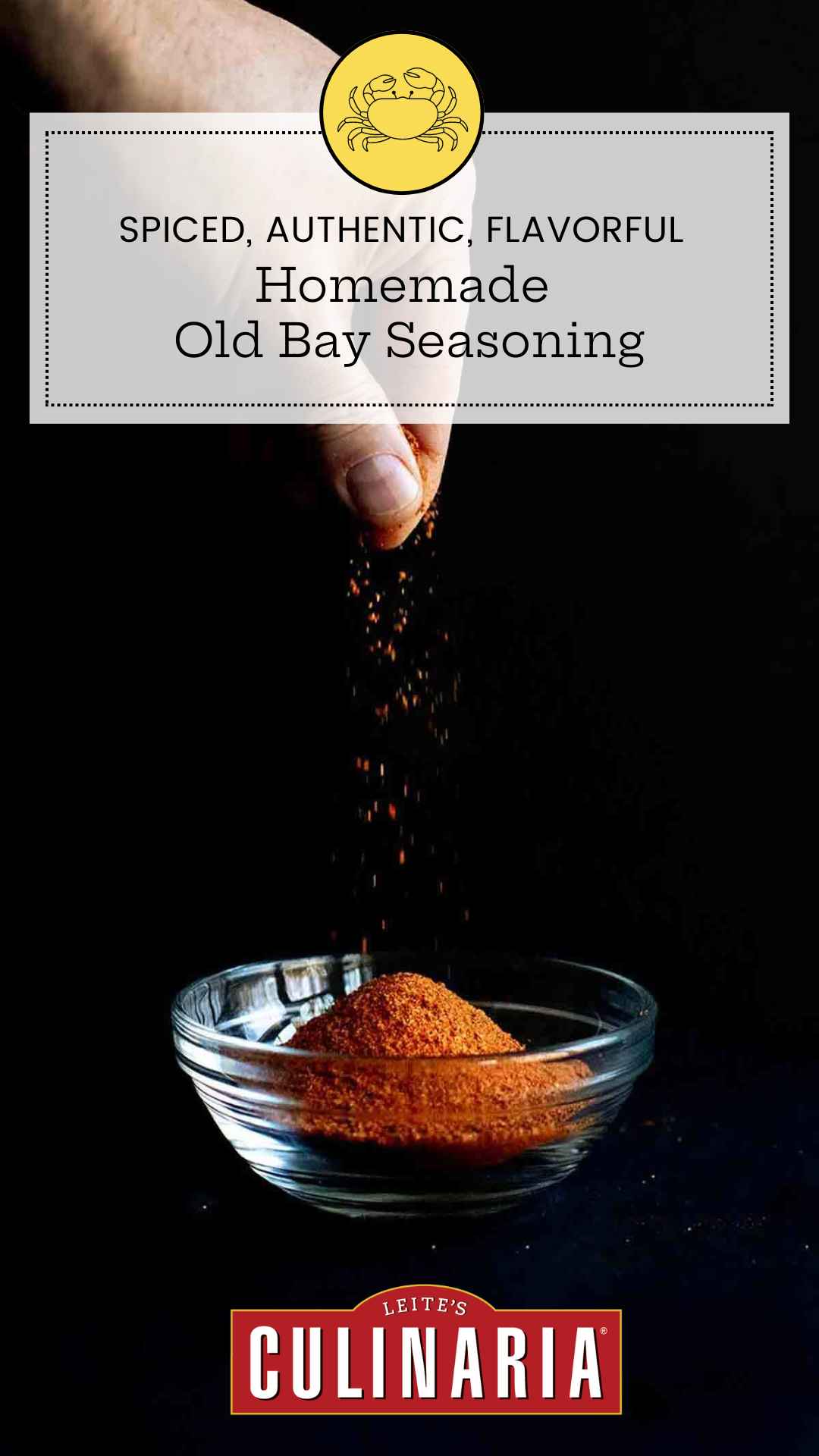
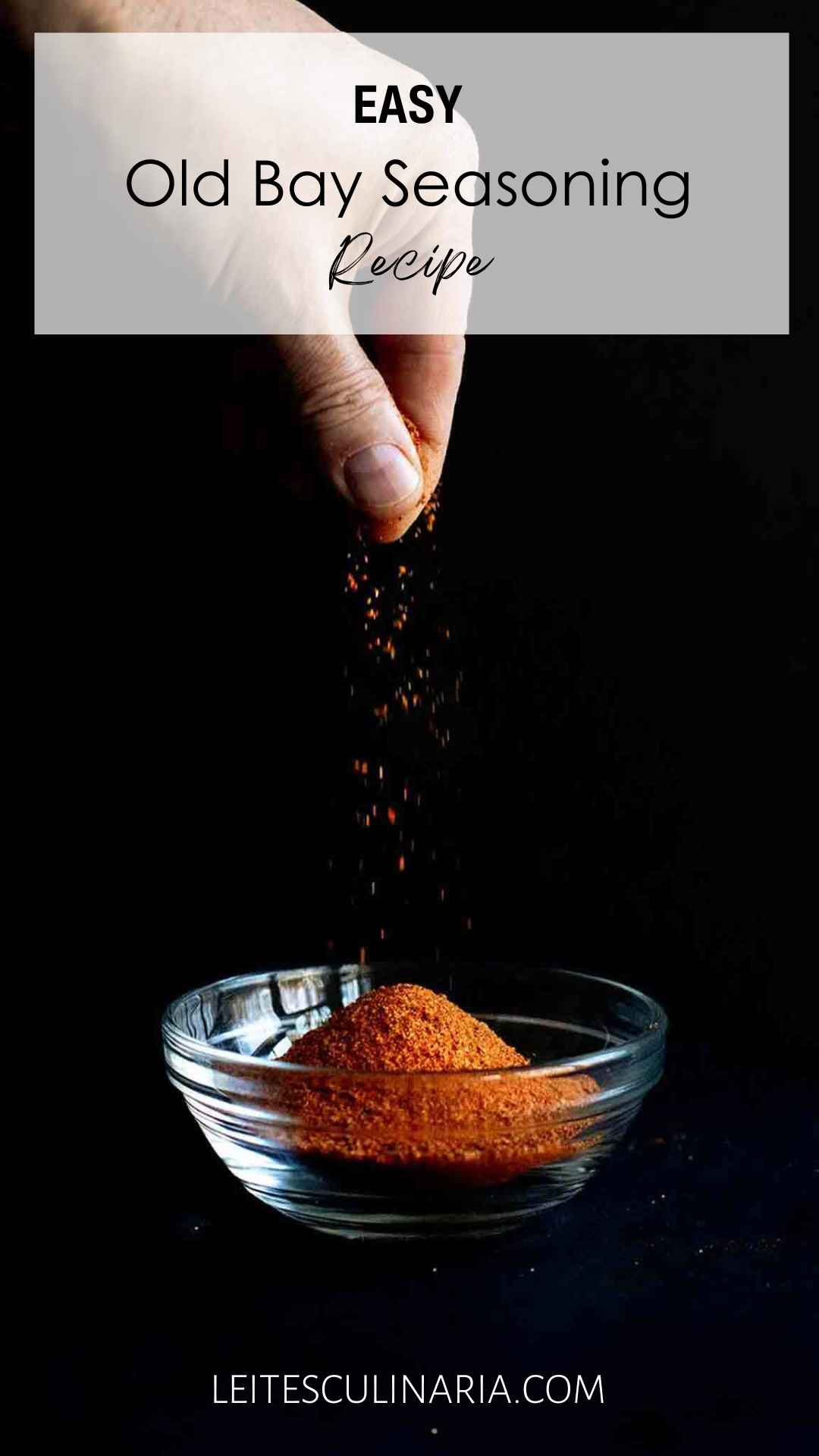
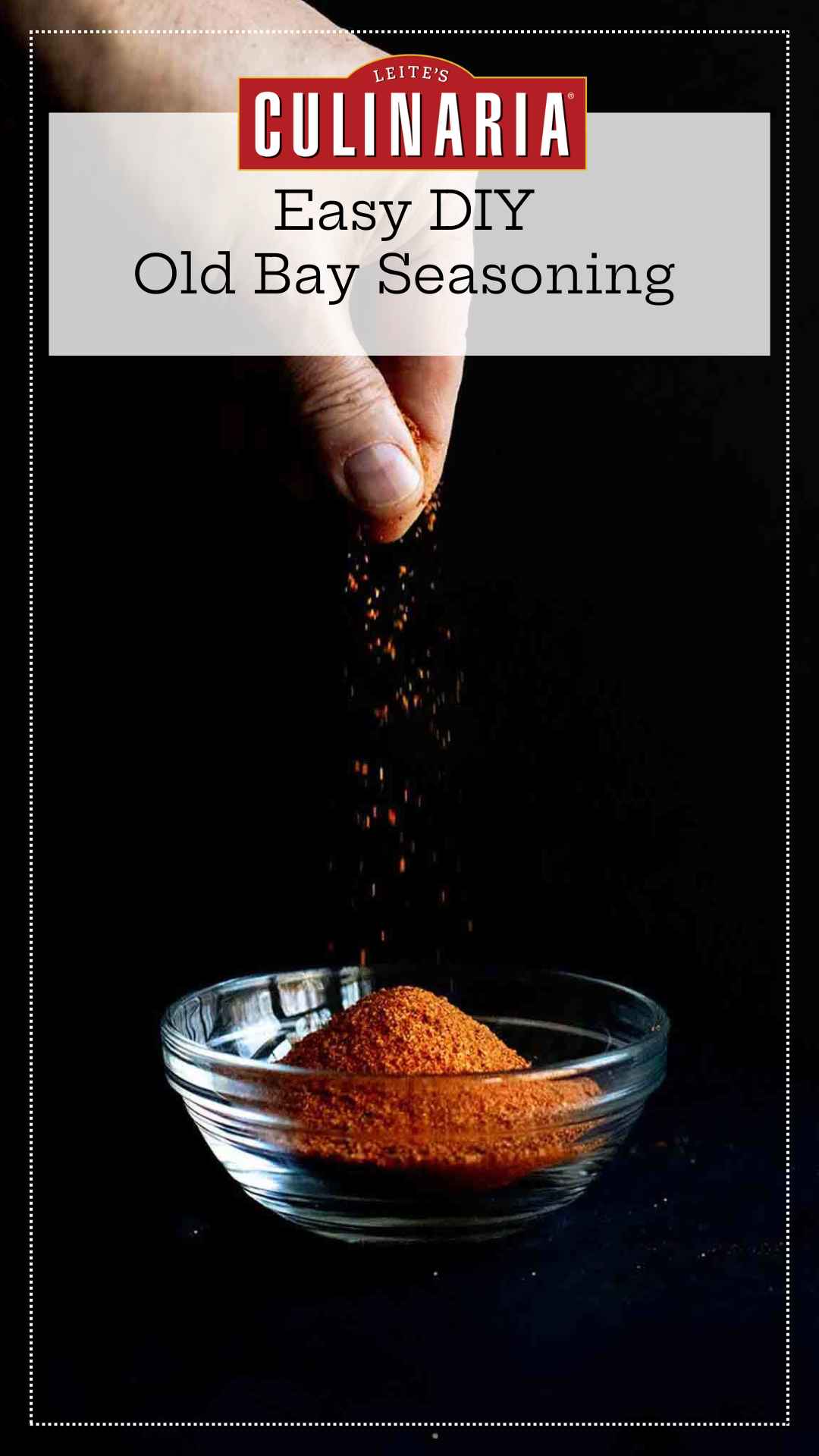
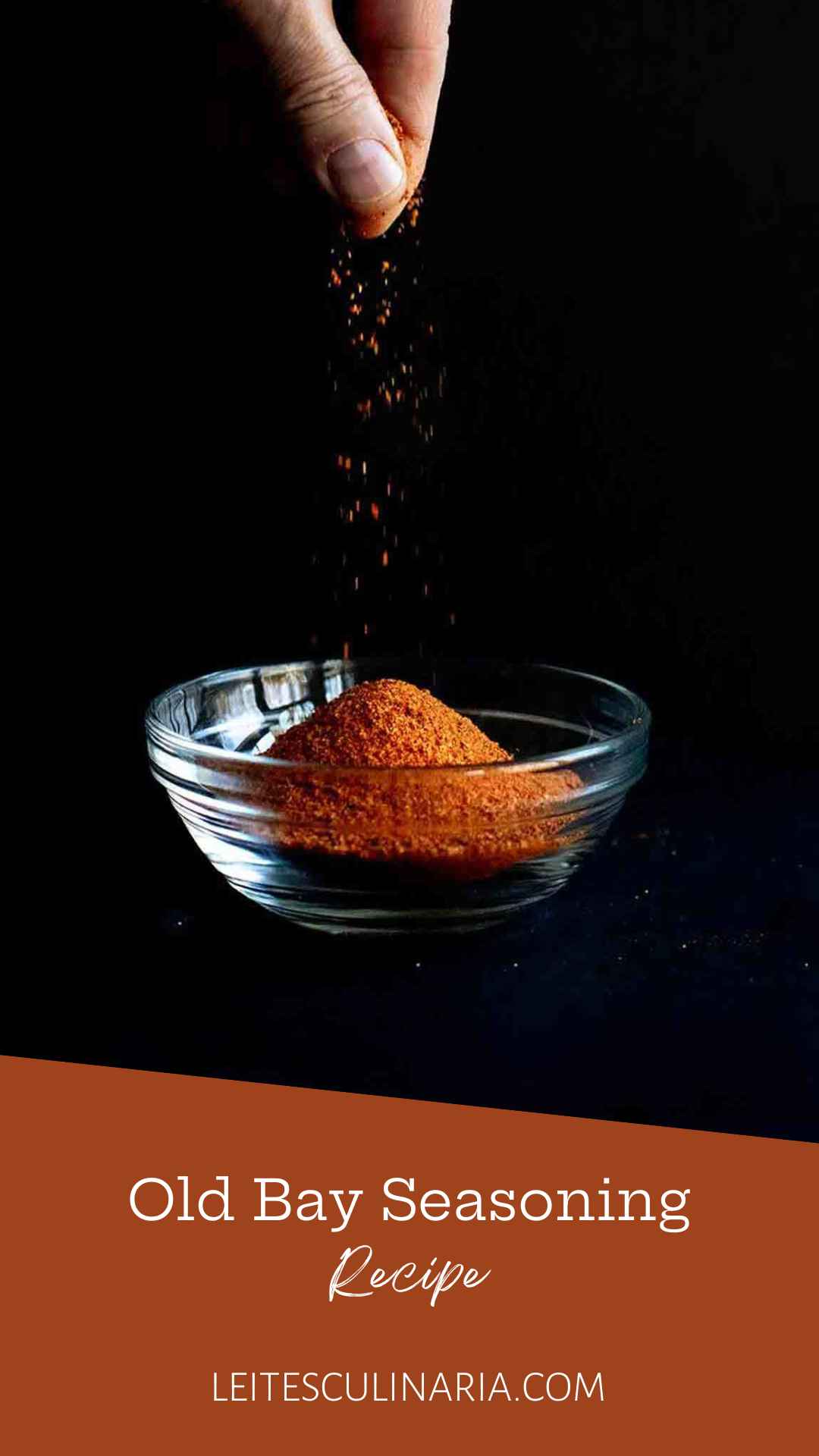
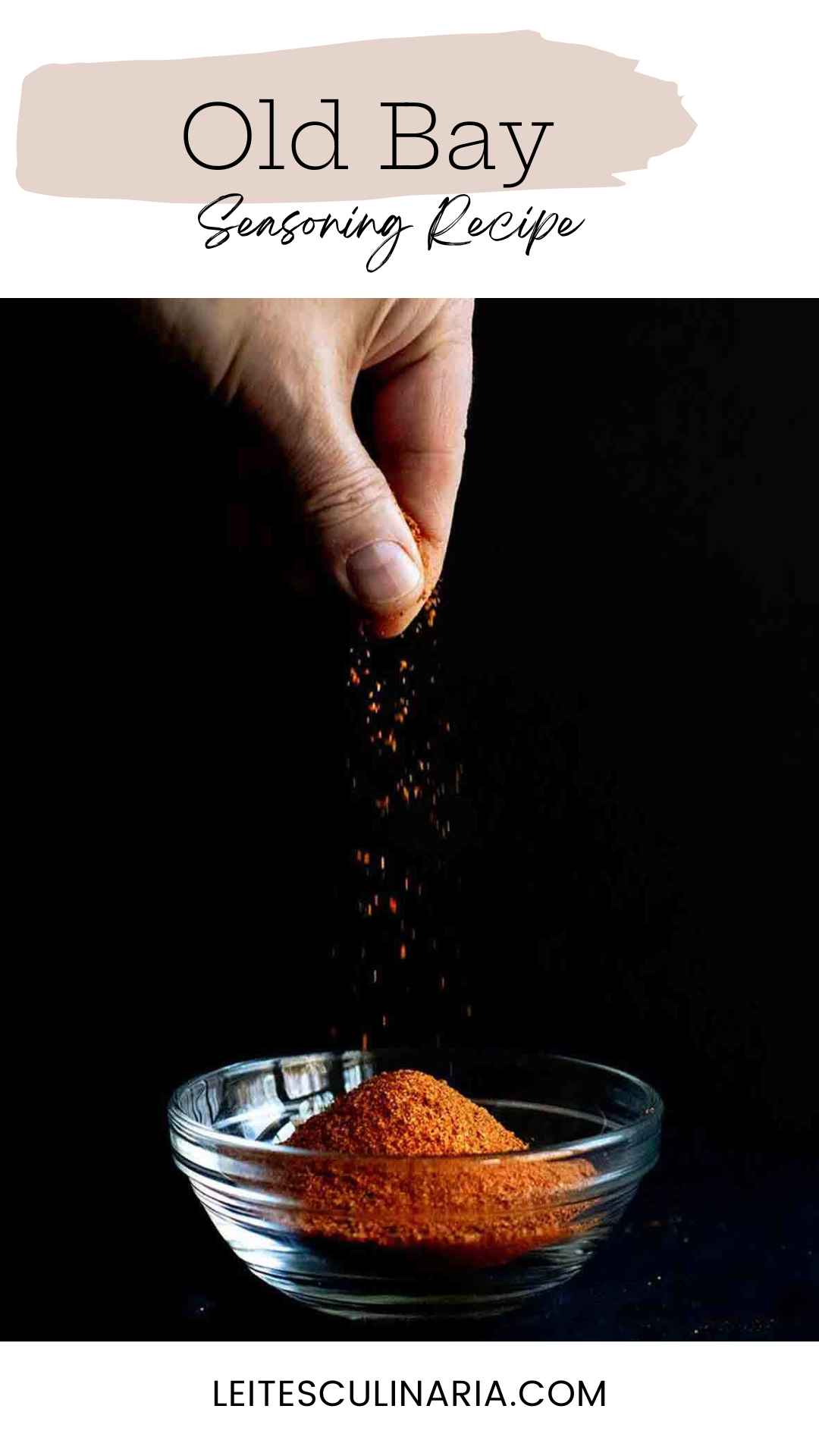
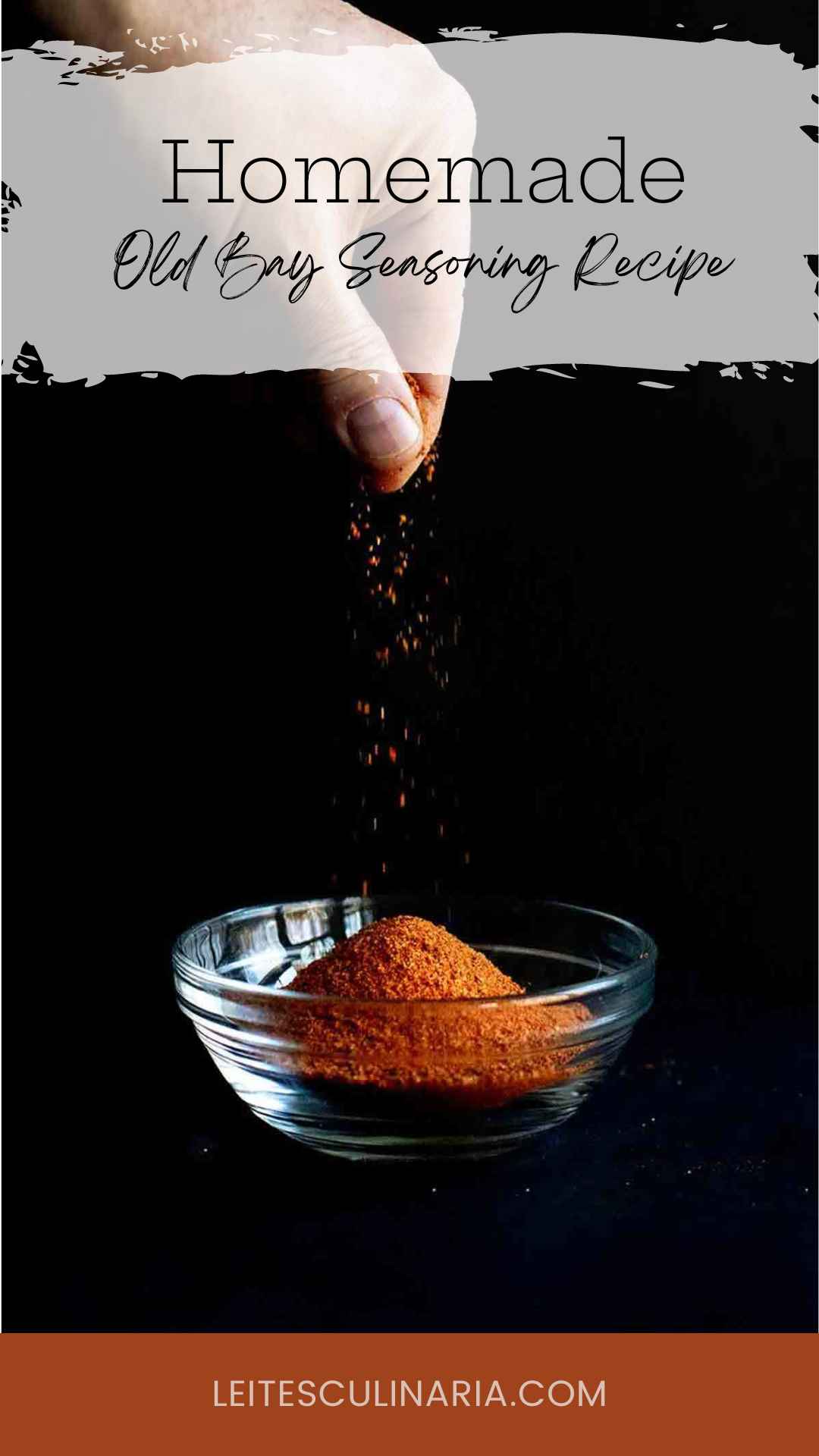
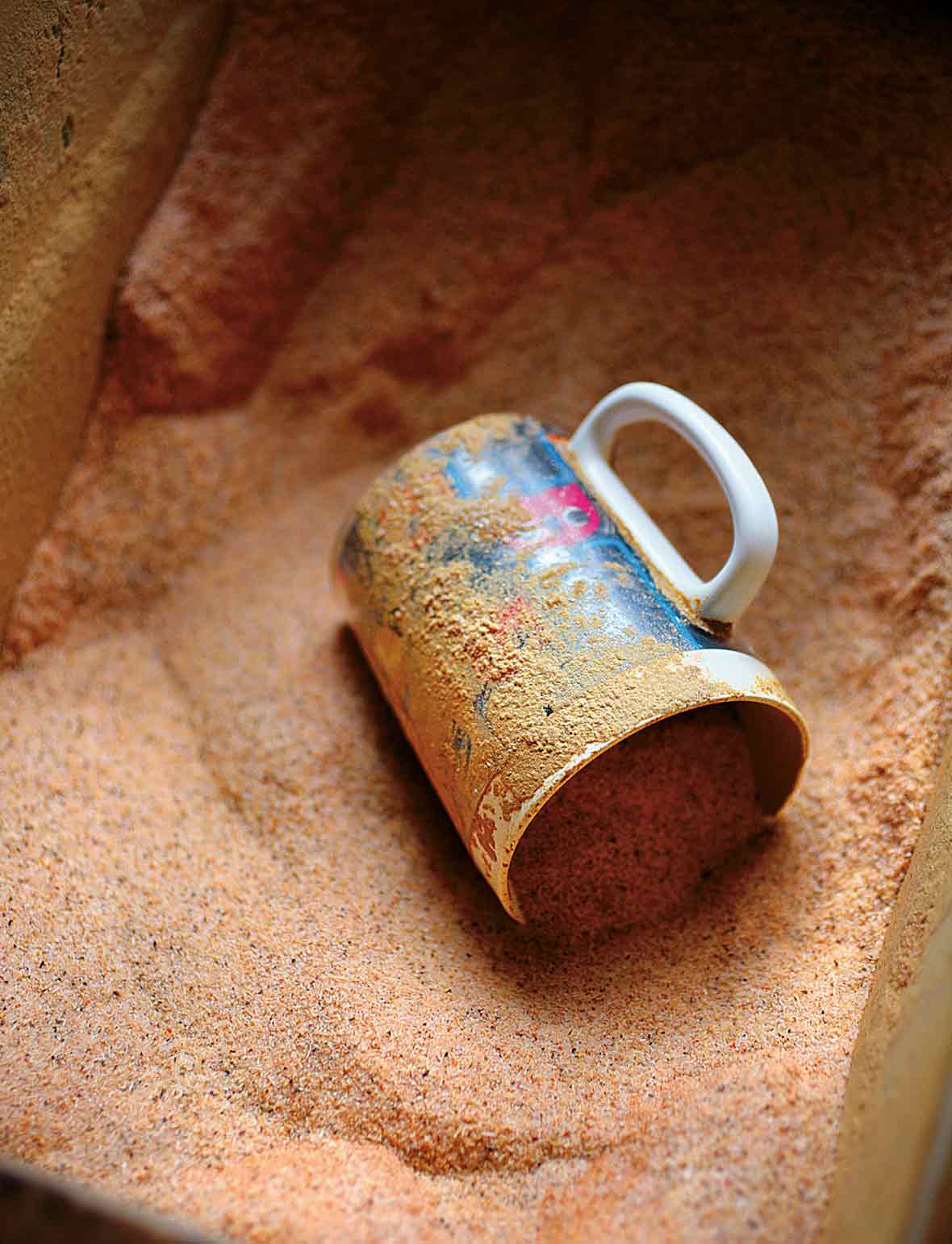
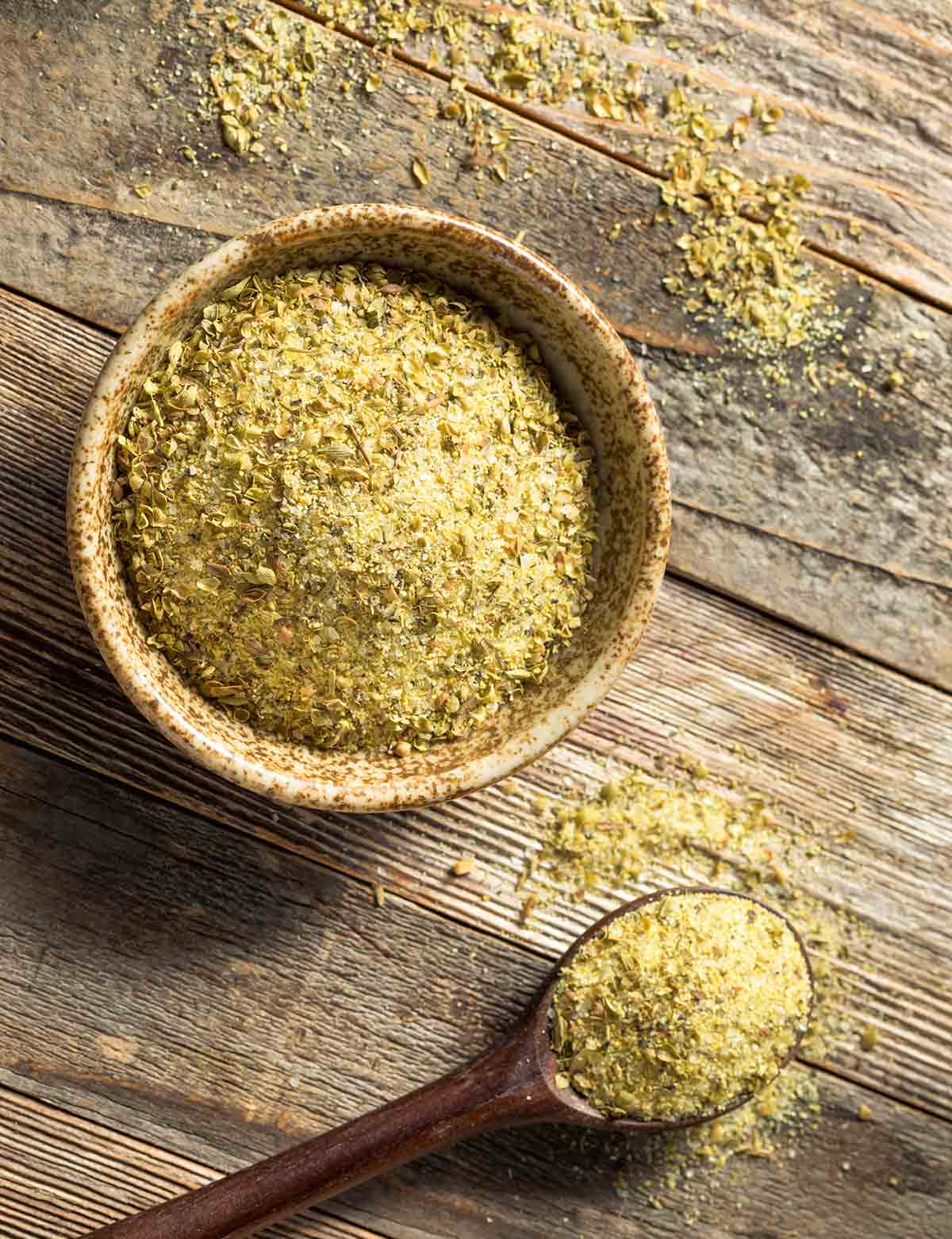













This recipe is a direct rip-off of Todd Wilbur’s copycat recipe published in one of his Top Secret Recipe books, with no credit given.
Bill, the recipe does come from Todd Wilbur’s book. He is credited at the top of the post and the book is also credited in the recipe with a link to purchase his book.
After comparing this to another “Old Bay” recipe, I realized there are no bay leaves in this one. The McCormick website says there are bay leaves in Old Bay, so was this a conscious decision, or an oversight? Thanks.
Mike D., we don’t know exactly what the author had in mind. I do know the recipe is great, and we use it often. When I check their site, it lists these ingredients: Celery Salt (Salt, Celery Seed), Spices (Including Red Pepper and Black Pepper), and Paprika.
Just someone, I’m so, so sorry that you had an unpleasant experience. The fish does look nice, though! But what confuses me is that for a person who never adds salt to their food, why you would even think of adding celery salt? It’s almost all salt!! Confounding!